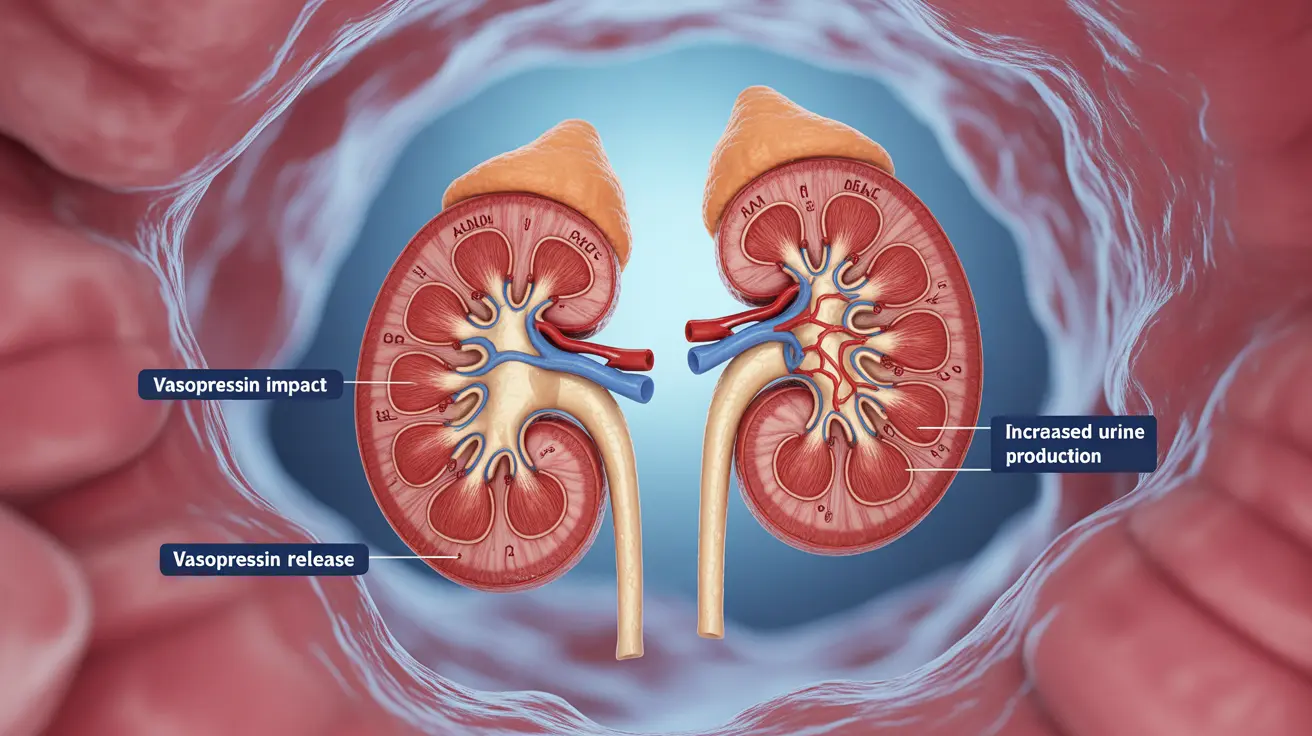If you've ever wondered why a night of drinking leads to frequent trips to the bathroom, you're not alone. The relationship between alcohol consumption and increased urination is a common experience that has a fascinating scientific explanation. Understanding this connection can help you make informed decisions about your drinking habits and maintain better hydration.
How Alcohol Affects Your Body's Water Balance
When you consume alcoholic beverages, they trigger several changes in your body's careful water regulation system. The primary mechanism involves the disruption of a crucial hormone called vasopressin, also known as antidiuretic hormone (ADH), which plays a vital role in water conservation and urine production.
The Vasopressin Connection
Under normal circumstances, vasopressin helps your kidneys retain water by reducing urine production. However, alcohol suppresses vasopressin release, essentially telling your kidneys to release more water rather than conserve it. This leads to increased urine production and more frequent bathroom visits.
Understanding the Diuretic Effect
Alcohol is classified as a diuretic, meaning it promotes water loss through increased urination. This effect becomes more pronounced as alcohol concentration increases, which explains why stronger drinks might send you to the bathroom more frequently than lower-alcohol beverages.
The Role of Drink Strength
- Higher alcohol content typically leads to stronger diuretic effects
- Beer, despite its lower alcohol content, adds extra fluid volume
- Mixed drinks with caffeinated mixers can increase the diuretic effect
- Hard liquor, while consumed in smaller volumes, has concentrated diuretic properties
Impact on Hydration and Health
The combination of increased urination and reduced water conservation can lead to dehydration, which often contributes to hangover symptoms. Your body loses more fluid than it takes in, along with essential electrolytes needed for proper bodily function.
Signs of Alcohol-Related Dehydration
- Increased thirst
- Dry mouth
- Headache
- Fatigue
- Dark-colored urine
- Dizziness
Prevention and Smart Drinking Strategies
Taking proactive steps while drinking can help minimize the negative effects of alcohol-induced frequent urination and maintain better hydration levels. This includes pacing yourself, alternating with water, and being mindful of your alcohol consumption.
Frequently Asked Questions
Why does drinking alcohol make you pee so much more than water?
Alcohol suppresses vasopressin production, which normally helps your kidneys conserve water. Without adequate vasopressin, your body produces more urine than it would with non-alcoholic beverages.
How can I avoid dehydration and headaches after drinking alcohol?
Alternate alcoholic drinks with water, eat before and while drinking, pace yourself, and consider drinking a glass of water before bed. These strategies help maintain hydration and minimize hangover symptoms.
Does every type of alcohol cause frequent urination, or does it depend on the strength?
While all alcoholic beverages increase urination, higher alcohol content typically causes a stronger diuretic effect. However, the total volume of liquid consumed also plays a role in urination frequency.
What is the connection between alcohol, urine production, and the hormone vasopressin?
Alcohol inhibits vasopressin release, which normally signals the kidneys to conserve water. Without proper vasopressin levels, the kidneys produce more urine, leading to increased bathroom visits.
What are the best ways to stay hydrated if I'm drinking alcohol socially?
Follow these strategies:
- Drink water between alcoholic beverages
- Consume food while drinking
- Choose lower-alcohol options
- Set a drinking pace
- Monitor your urine color as a hydration indicator
- Consider electrolyte replacement drinks




